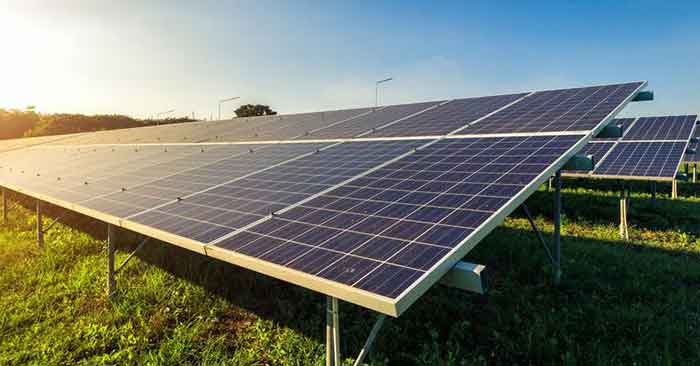
“(W)e haven’t even started to talk about what might be ‘possible’ and are still mostly arguing about what is ‘feasible without compromising economic growth.’ These are of course extremely different things, and the latter will not get us anywhere near the 1.5 degrees C target.” Damon Matthews
Although last weeks court cases and shareholder battles have been (rightly) called a bad, bad day for oil, climate hawks will see much more evidence that we are still stuck in the continuing era of predatory delay. As with the commentary after the recent IEA Roadmap to Net-Zero report, there is renewed hope (wrongly) in the ‘energy transition’ instead of needed refocusing upon a draconian, last chance, regulated reduction of GHG emissions.
Coverage of the IEA report headlined a call for no new investment in fossil fuel exploration and infrastructure. This would have been a very welcome development two decades ago and if acted upon then we wouldn’t have invested the trillions of dollars that will continue to expand production for at least the next several decades. But a call for an end to new investment now – instead of a call to decrease fossil fuel use in order to actually reduce emissions by the required 7-10% per year this decade – just indicates how those seeking to prolong fossil fuel use still control how we perceive climate mitigation.
The court cases in the Netherlands and Australia and the shareholder battles are being interpreted as instruments to put pressure upon industry to hasten action in the energy transition but the emerging climate science – what is to expected to be front and center in the next IPCC assessment report scheduled for 2022 – is clear that if we care to act responsibly, that there is no more time for the allowed, orthodox decarbonization conception of climate mitigation – the clean energy transition – where renewables out compete fossil fuels in existing markets, aided by carbon pricing and/or industrial policy. There is no time for a government led Green New Deal to speed up this energy transition either (even if the GND was politically possible).
For only one example, consider a recent paper on permafrost carbon feedbacks and how – when finally incorporated into IPCC reporting – these feedbacks will decrease carbon budgets for staying below 2C. Add in GHGs from carbon sinks that are switching to sources – like forests globally, and from present sinks that are predicted to diminish in their capacity to store carbon, especially soils, and the timeline for needed mitigation shrinks considerably. Plus, overshoot scenarios in previous IPCC projections do not consider that negative emissions in the second half of the century will also have to include these building GHG emissions from feedbacks.
Maybe we should instead consider urgent, effective mitigation policies like supply-side regulation of fossil fuel production that could and would reduce emissions this decade.
The energy transition has turned out to be a good time waster over the past several decades, allowing fossil fuel expansion and use for those for whom predatory delay is in their vested interest – for those who have been working hard to save business as usual from needed climate mitigation.
Additionally, there is disturbing new thinking that the elusive inflection point in the transition to renewables will happen much later than presumed: what matters is how profitable fossil fuels are, rather than just cost in competition with renewables – renewables are getting cheaper, but fossil fuels are still more lucrative. This should lead climate hawks to renounce the energy transition false path and put more pressure on governments for regulated managed declines.
Of course, reduction of fossil fuel use is impossible without alternate sources of energy and the beginning conceptions of climate mitigation were and should have been about making an energy transition. But now, today, we require emission reduction urgently at a far faster pace than is possible through replacement with renewables. Our obligation to future generations requires powering down, a systemic transition from the fossil fuel generated economy. (We will still need a strong Green New Deal to both build the renewable capacity possible and to support non-energy innovation in building a post-carbon economy.)
Instead of a regulated reduction of what has now become a potentially fatal toxin, we are still obviously trying to hurry up a 100% renewables energy transition that was always a comforting daydream, a stretch even on the 2050 timeline, but that now promises only limited emission reduction in a fossil investment fueled BAU till at least 2040. The new MIT 2021 Global Change Outlook predicts only a modest reduction in fossil fuel use by 2050 in it’s three scenarios.
Fossil fuel companies are still obviously in charge of the emission reduction timeline. We aren’t going to reduce emissions at a scale needed this decade without change to a much more aggressive (and much more contentious) mitigation path. To try and stay safe from the potentially existential consequences of climate change we now need to challenge continuing predatory delay, challenge those fossil fuel powers that still restrict mitigation policies, and wake up those that remain wedded to a dream that is now an obstacle, a buttress for continuing denial, to doing the right, responsible thing for our descendants..
Bill Henderson is a long time climate activist and Countercurrents contributor – bhenderson(at)dccnet(dot)com
GET COUNTERCURRENTS DAILY NEWSLETTER STRAIGHT TO YOUR INBOX














































